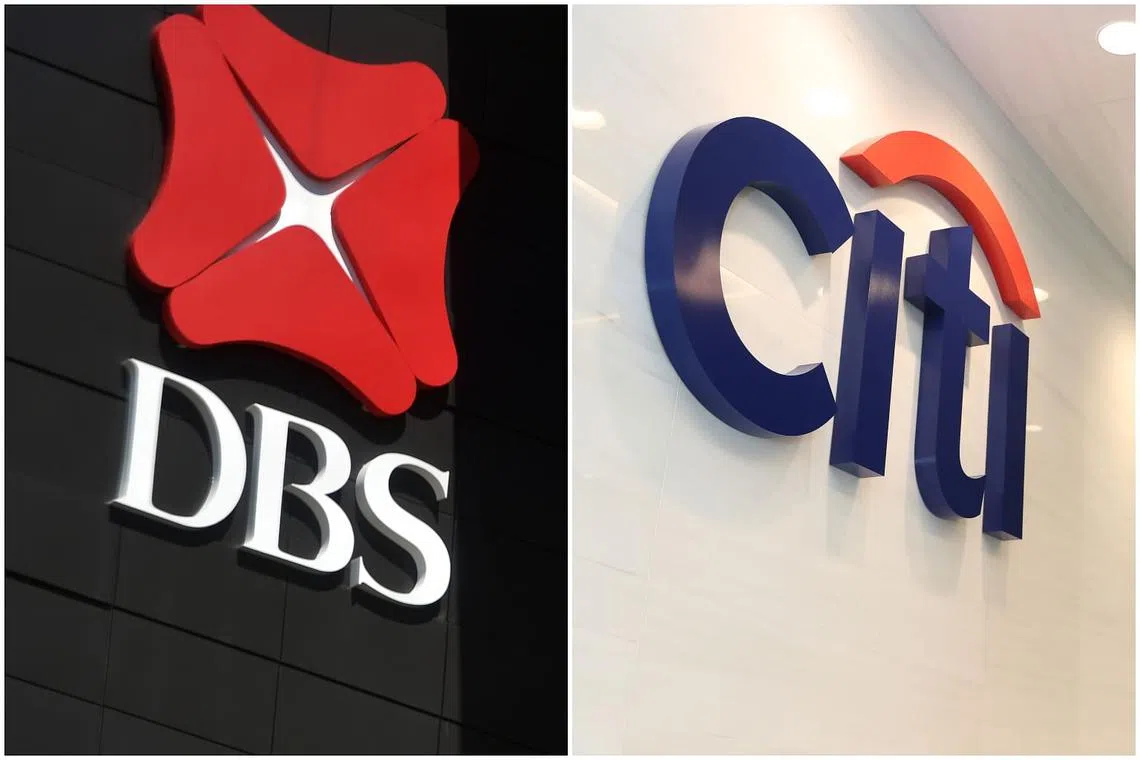DBS becomes largest foreign bank in Taiwan after merger with Citi’s consumer banking unit
Sign up now: Get ST's newsletters delivered to your inbox

DBS Bank successfully merged with Citigroup's consumer banking business at the weekend.
PHOTOS: ST FILE
SINGAPORE - DBS Bank became the largest foreign bank by assets in Taiwan on Monday, after it successfully merged at the weekend with Citigroup’s consumer banking business there that came with almost 3,000 staff.
In completing the acquisition, the lender now has “clear market leadership in loans, deposits, cards and investments among foreign players in the market”, a DBS spokesman said.
The deal effectively doubled DBS’ consumer-banking customers in Taiwan to some 1.1 million, whereas credit card accounts climbed nearly fivefold to over three million.
Meanwhile, total balances for loans and deposits rose by up to 1.6 times to $32 billion and $36 billion respectively. Investment assets under management more than trebled to over $12 billion.
Notably, the bank paid a smaller premium for the purchase, largely because of the strength of the Singapore dollar.
When DBS announced the acquisition in January 2022,
Instead, it paid just $930 million, even though the premium had risen to NT$22 billion at the close of the deal.
DBS chief executive Piyush Gupta said the success in integrating the two operations continues the strategy of building meaningful scale in its core Asian markets, estimating that the move had accelerated the bank’s consumer business growth in Taiwan “by at least 10 years”.
“Overnight, revenue from the market will more than double to over $1.3 billion,” he added.
When the deal was announced in 2022, DBS’ helmsman said Citi’s consumer operations in Taiwan were expected to contribute “at least $250 million annually in net profit”.
DBS had also planned to inject $2.2 billion into the Taiwan unit, $1.2 billion of which would be used as capital to support incremental risk-weighted assets and capital needs.
The lender had said then that it would fund the transaction with excess capital, and the deal would not impact its ability to pay dividends.
At around the same time last year, UOB had separately agreed to buy Citigroup’s consumer banking franchises in Indonesia, Malaysia, Thailand and Vietnam for about $4.915 billion.
Back then, UOB deputy chairman and chief executive officer Wee Ee Cheong had said that the move would enable Singapore’s third-largest bank to “scale up its business in all four key regional markets at one go” and accelerate its growth targets by five years.
The lender was expected to pay a premium of $915 million that would be fully funded by excess capital, while also bringing on board Citibank’s 5,000 employees in the four countries, including senior leadership.



